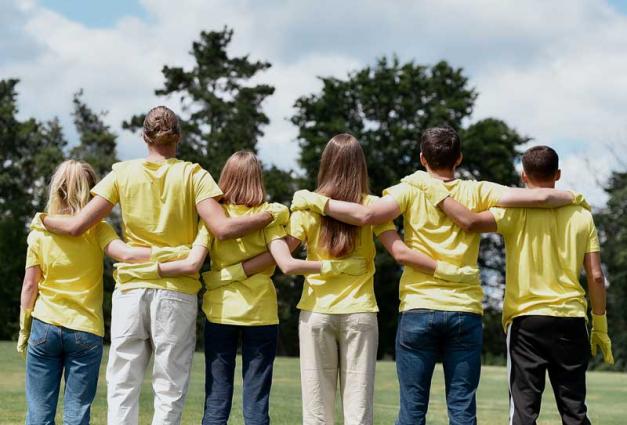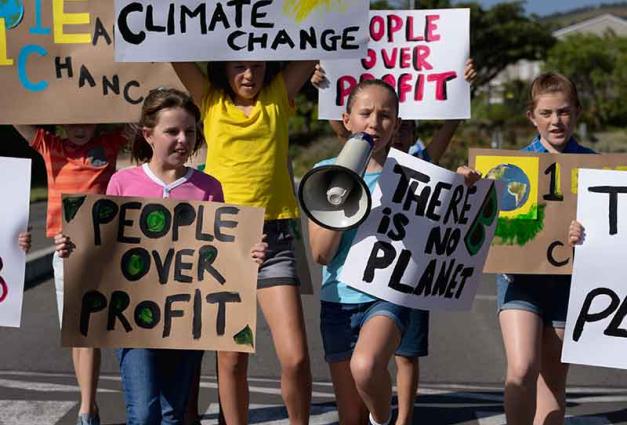In a previous post, psychologists weighed in on the question of why many people are not responding strongly to deal with the climate crisis. As a follow-up, we asked experts in personality and social psychology whether there are any psychological principles that might give us hope that people can be convinced to confront the problem. Our experts suggested five reasons for hope.
1. Reason for hope: Information does help.
Dr. Daniel W. Barrett of Western Connecticut State University points out that we sometimes underestimate how much attitudes toward climate change are malleable and sensitive to influence. Although it is easy to dismiss so-called climate deniers as individuals who are immune to facts, research shows that facts can make a difference. For instance, research shows that when people acquire the knowledge that virtually all climate scientists agree that climate change is real, a significant percentage update their beliefs accordingly. Consequently, providing climate skeptics with complete and accurate information can help to nudge them in the desired direction. In addition, other research suggests that rates of belief in climate change are higher when people are provided with an explanation that climate change is caused by greenhouse gas emissions. So simply explaining what causes climate change can increase belief in climate change. Such findings highlight the importance of educating people about the science of climate change.
2. Reason for hope: Thinking about our relationship with the environment can make us want to care for it.
Dr. Eric Wesselmann of Illinois State University points out that people can feel committed to the environment in much the same way that they can feel committed to their interpersonal relationships. In other words, people can feel like they have a relationship or bond with the planet. Just as with interpersonal relationships, people’s commitment to the environment involves a positive emotional connection. People tend to think of their connection to the Earth in the long-term and are motivated to behave in ways that safeguard that relationship just as they safeguard their relationships with other people. Environmental commitment predicts attitudes toward eco-friendly initiatives and behaviors, as well as the willingness to sacrifice for the environment. Thus, perhaps encouraging people to think of their connection to the environment as a relationship – one that they want to maintain in a positive way – would encourage them to take the issue of climate change more seriously.
3. Reason for hope: Attitudes are changing.
Although climate change has a history of skepticism and denial in the United States, we have recently hit a turning point with the majority of Americans (66% in a recent poll) believing that climate change is real and caused by human activity. Furthermore, most Americans say that the government is not doing enough to protect the environment. Not only is it encouraging that more people believe in climate change and are concerned about inaction, but it suggests an additional way to increase people’s commitment to change.
Dr. Phillip Ehret of California State University-San Marcos points out that people are very influenced by their peers. If people understand that most of their peers believe in climate change, they will be more likely to believe in it themselves. Given that the majority of Americans now believe in climate change and want action, it may come down to helping people on both sides of the aisle, as well as those in the middle, to see that their fellow citizens support climate policy. Getting people to see that a consensus is growing may go a long way.
4. Reasons for hope: People can focus on the long game.
Changing our behavior to save the planet is difficult because people have a hard time giving up their current desires for long-term needs. However, there is hope in this area as well. Social psychologists know a lot about how to engage people in issues in ways that will lead them to focus more on the long-term greater good than on their short-term personal desires. We know, for example, that putting behaviors in the public spotlight can lead to changes in behavior. For example, monitoring car emissions can lead people to make better choices about driving. In addition, creating payoffs for cooperative behavior can lead to better behavior. For example, cap and trade programs have been shown to lead to better outcomes for the planet. Finally, government regulations, such as United Nations climate agreements, have been shown to be effective. All of these can be used as policy tools to fight people’ natural inclinations to favor the present over the future.
5. Reasons for hope: People can overcome fear.
One problem with climate change information is that it causes fear and fear tends to make us shut down. Luckily, there are ways to overcome that tendency. Dr. Alison Ledgerwood of the University of California-Davis points out that fear is okay as long as it is accompanied by reassuring information about how to avoid the threat. For example, smoking ads can be more effective when they include information about how to quit smoking instead of just telling people that smoking is hazardous to their health. Similarly, messages about climate change should be more effective at motivating behavior change when they include information about what people can do to avoid the dangerous threat. The problem is that it's harder to address climate change than it is to quit smoking because we need coordinated action across many people, not just individual people to change. Still, providing people with information about promising initiatives that could be implemented at the level of local and national governments to impact climate change -- and telling them exactly how they can take individual actions to push for that policy (by calling their representatives, for example) -- could increase the likelihood that people will listen to and act on climate change information.
In summary, psychology provides insight into ways to increase the likelihood that people will band together to save the planet. First, people are receptive to new information, and research shows that education about climate change can change people’s attitudes. Second, if people are encouraged to think about their relationship to the planet, they may be more likely to work to fight climate change. Third, attitudes about climate change are already changing, and we can snowball that effect by letting people know that their peers believe in climate change and want more to be done to fight it. Fourth, through various means, we can encourage people to focus on the long term view, which may lead them to be willing to sacrifice some for the long term health of the planet. Finally, people are capable of overcoming their fear of global crisis if they are given clears actions they can take to overcome climate change.
About the Author
Shira Gabriel is an Associate Professor at SUNY Buffalo, the Editor of the journal Self & Identity, and an Associate Editor of the SPSP Character & Context blog.




